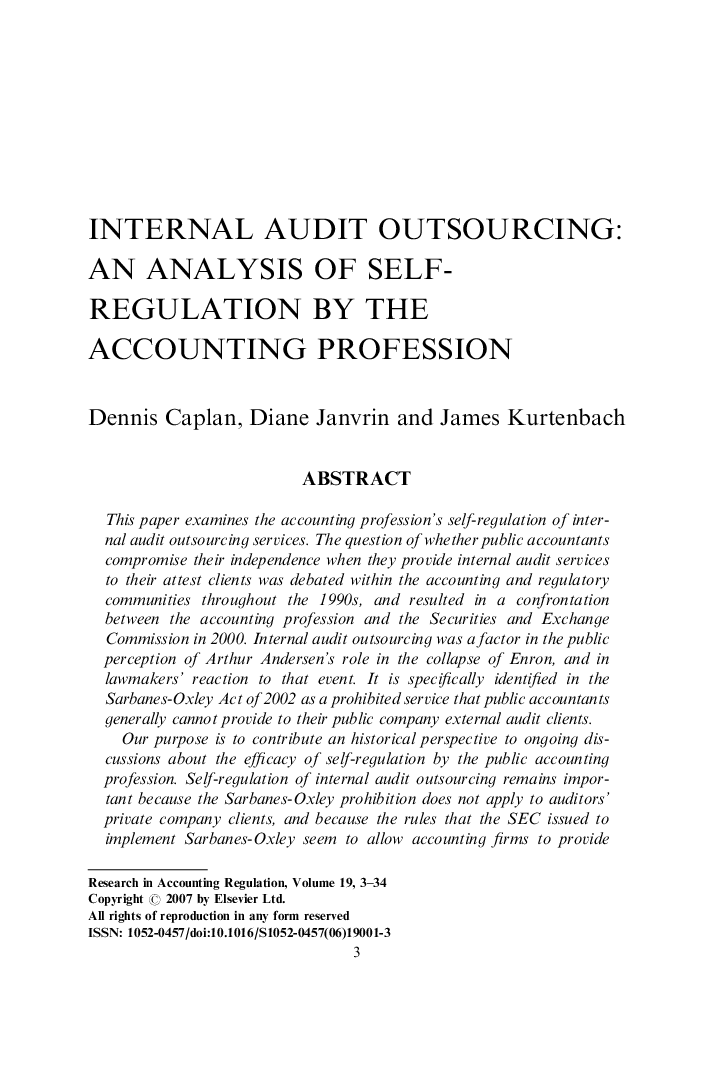| Article ID | Journal | Published Year | Pages | File Type |
|---|---|---|---|---|
| 1006757 | Research in Accounting Regulation | 2007 | 32 Pages |
This paper examines the accounting profession's self-regulation of internal audit outsourcing services. The question of whether public accountants compromise their independence when they provide internal audit services to their attest clients was debated within the accounting and regulatory communities throughout the 1990s, and resulted in a confrontation between the accounting profession and the Securities and Exchange Commission in 2000. Internal audit outsourcing was a factor in the public perception of Arthur Andersen's role in the collapse of Enron, and in lawmakers’ reaction to that event. It is specifically identified in the Sarbanes-Oxley Act of 2002 as a prohibited service that public accountants generally cannot provide to their public company external audit clients.Our purpose is to contribute an historical perspective to ongoing discussions about the efficacy of self-regulation by the public accounting profession. Self-regulation of internal audit outsourcing remains important because the Sarbanes-Oxley prohibition does not apply to auditors’ private company clients, and because the rules that the SEC issued to implement Sarbanes-Oxley seem to allow accounting firms to provide internal audit services to public company attest clients under a variety of circumstances that were not anticipated in the original legislation. Although accounting firms have not yet shown strong interest in testing the limits of the new rules, the firms may do so in the future.
